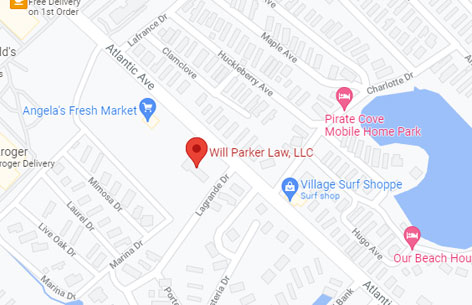Catastrophic injuries can come from a number of different types of accidents. However, most commonly, a catastrophic injury will result from:
- High-speed accidents
- Head-on collisions
- Pedestrian accidents
- Truck accidents
- Motorcycle accidents
“Catastrophic” injuries generally involve one or more of the following characteristics:
- A permanent incapacitation of at least one of the major body systems
- Permanent inability to perform responsibilities for gainful employment
- Permanent and severe physical, cognitive, or emotional/behavioral disability
- Damage to the head, neck, or spinal cord
How are Catastrophic or Serious Injury Claims Valued in Horry County or Georgetown County?
In a catastrophic injury case, damages include the costs that your injuries have created for you monetarily, physically, and mentally. They also include the potential amount that a court might award as punishment against the party who caused your injury in order to deter others from similar negligent conduct.
The value of a catastrophic or serious injury claim will be based on:
- Medical Treatment. The cost of medical care and ongoing treatment or therapy associated with the injury event, including compensation for estimated futurecare, plays an extremely important role in determining the value of any catastrophic injury case. Due to the severe nature of catastrophic injuries, the medical costs associated with them can be very high.
- Income. Many catastrophic injury victims find themselves unable to work after their accident, sometimes for the rest of their lives. In these cases, injury survivors may be entitled to compensation under the law for lost wages and benefits. This includes both income lost to-date and future income that the survivor would likely have earned if they hadn’t been hurt.
- Pain and Suffering. This category of damages is more difficult to pin down than the others, but it generally includes any long-term physical, emotional, and/or mental consequences that prevent the victim from enjoying their life in the way they did before.
- Loss of Enjoyment. This category of damages refers to a survivor’s loss of their ability to enjoy day-to-day activities like sports, hobbies, and other recreational pursuits.
How Can All Medical Costs be Valued in a Serious Injury Case When it Isn’t Known What Medical Treatments May Be Needed in the Future?
Typically, personal injury lawyers wait until a client has reached maximum medical improvement before attempting to evaluate future treatment needs. Maximum medical improvement means the point at which a client’s condition is unlikely to get any better, even with additional medical care. However, more treatment past the point of “maximum medical improvement” may be necessary in order to help reduce pain and make other symptoms more manageable.
Your attorney will work with a team of experts, including health care providers, medical specialists, and life care planning experts, to help determine the extent of your future medical costs, and to help assign monetary value to those costs to propose as damages. Your own medical team (i.e., all medical professionals who are treating you for your injury and the ensuing effects) may also be able to help you determine your future medical needs, such as whether you will require surgery and how long you will need to take pain medication.
Some of the factors that often need to be considered when attempting to assess the value of future treatment or medical care include:
- The age of the patient
- The general life expectancy of people in the patient’s specific demographic with their specific condition
- The patient’s treatment goals (i.e., which issues the patient is attempting to remedy and which treatments are available toward those ends)
- The patient’s health prior to their injury, including any other medical issues
- The level of disability that the accident has caused in the patient
- The estimated cost for the complete treatment of someone with similar injuries
- Myriad expected increases in medical costs in the future
- Whether the patient is expected to need more or different treatment over time
- Alternative care options that are more affordable
- Inflation rates; and
- The effectiveness of all possible treatments
What Happens if a Victim of Catastrophic Injuries Dies After Filing a Personal Injury Claim?
South Carolina allows a cause of action (like a personal injury claim) to survive a plaintiff’s death through something called a Survival Action. A personal representative of the deceased person’s estate can pursue a claim for damages suffered by the deceased before his or her death, including medical expenses, pain and suffering, and lost wages.
In addition, the deceased’s family members can bring a wrongful death claim for other damages they have suffered from the accident, which include:
- Loss of emotional support, love, and companionship by the spouse of the victim.
- Loss of financial support by the dependents of the victim.
- Funeral and burial expenses; and
- Emotional pain and suffering.
For more information on Catastrophic Injury Claims In South Carolina, an initial consultation is your next best step. Get the information and legal answers you are seeking by calling (843) 357-4111 today.

Call To See How We Can Help You Today
(843) 357-4111
